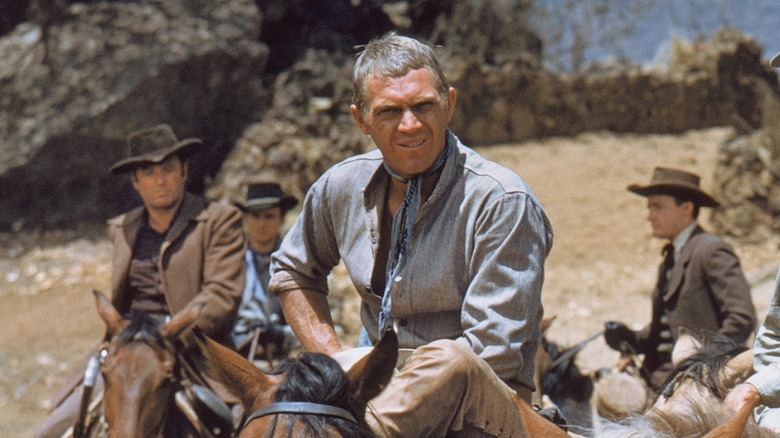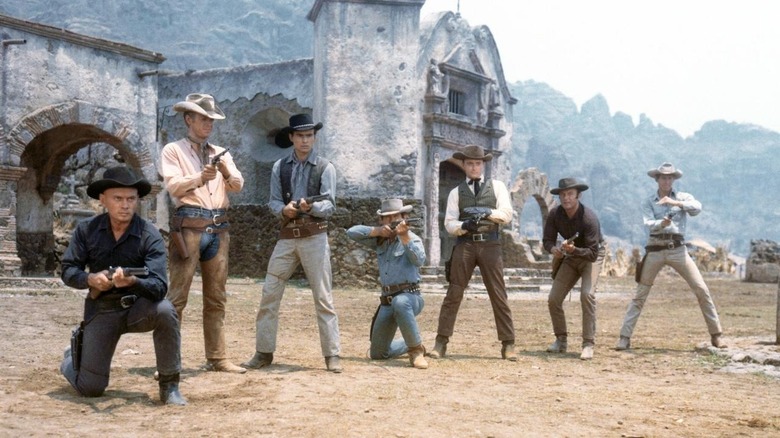Steve McQueen Pulled A Saul Goodman-Esque Trick So He Could Star In The Magnificent Seven
Steve McQueen is unimpeachably one of cinema history's coolest leading men. An actor known for awesome stunts and hard living, McQueen was seen as coolness personified during his heyday in the '60s. With roles in "The Great Escape," "The Cincinnati Kid," and "The Thomas Crown Affair" under his belt, he was one of the biggest stars in Hollywood.
But before McQueen was a certified megastar, he was a television actor waiting for his big break in movies. In his show, "Wanted Dead or Alive," he starred as a bounty hunter, which is properly cool on its own, but he sought movie stardom as the next step in his career.
Opportunity came to him in the shape of "The Magnificent Seven," a Western based off of Akira Kurosawa's 1954 masterpiece, "Seven Samurai." McQueen was offered a spot in the titular seven, a gang of gunslingers tasked with protecting a Mexican village from a pack of bloodthirsty bandits. As an opportunity to star alongside esteemed actor Yul Brynner, this part would be a huge boon to McQueen's budding career.
Unfortunately for McQueen (according to a Turner Classic Movies article on the film), the television studio that made "Wanted Dead or Alive," Four Star, was not eager to let the king of cool star in the movie. They denied permission, wanting to keep his deep well of charisma all to themselves. Unfortunately for Four Star, McQueen wasn't the sort of guy who took no for an answer, and he managed to get permission for the film in a way reminiscent of some of fiction's greatest con artists.
A classic con
As is the case with many actors of his day, McQueen was actually quite a handful to work with behind the scenes. During the later stages of his career, he'd refuse to do movies if he wasn't given top billing. He was a heavy drinker as well as a consistent allegations of abuse by his wives and lovers. Despite his cool guy persona, McQueen's legacy is now a thorny one. He could be ... difficult.
Four Star would learn of McQueen's difficulty the hard way, when, according to the Turner Classic Movies article, he decided to get out of his contract with the television studio. In order to do so, he channeled the likes of "Better Call Saul" anti-hero Saul Goodman by purposely crashing a rental car. After his "accident," he claimed he got a bad case of whiplash, an injury which would free him from his commitments to the studio.
With McQueen having conned his way out of his television contract, he was free to star in "The Magnificent Seven," which would prove to be a huge milestone in his career that would send him skyrocketing towards stardom.
While his act of defiance against a studio definitely qualifies as yet another cool act McQueen can claim, it's also indicative of his many flaws. Sure, crashing a car on purpose to fake an injury is awesome when a fictional character does it, but doing it in real life isn't exactly the most morally sound thing in the world. But this story certainly adds to McQueen's legend as an audacious risk-taker, for better and worse.

